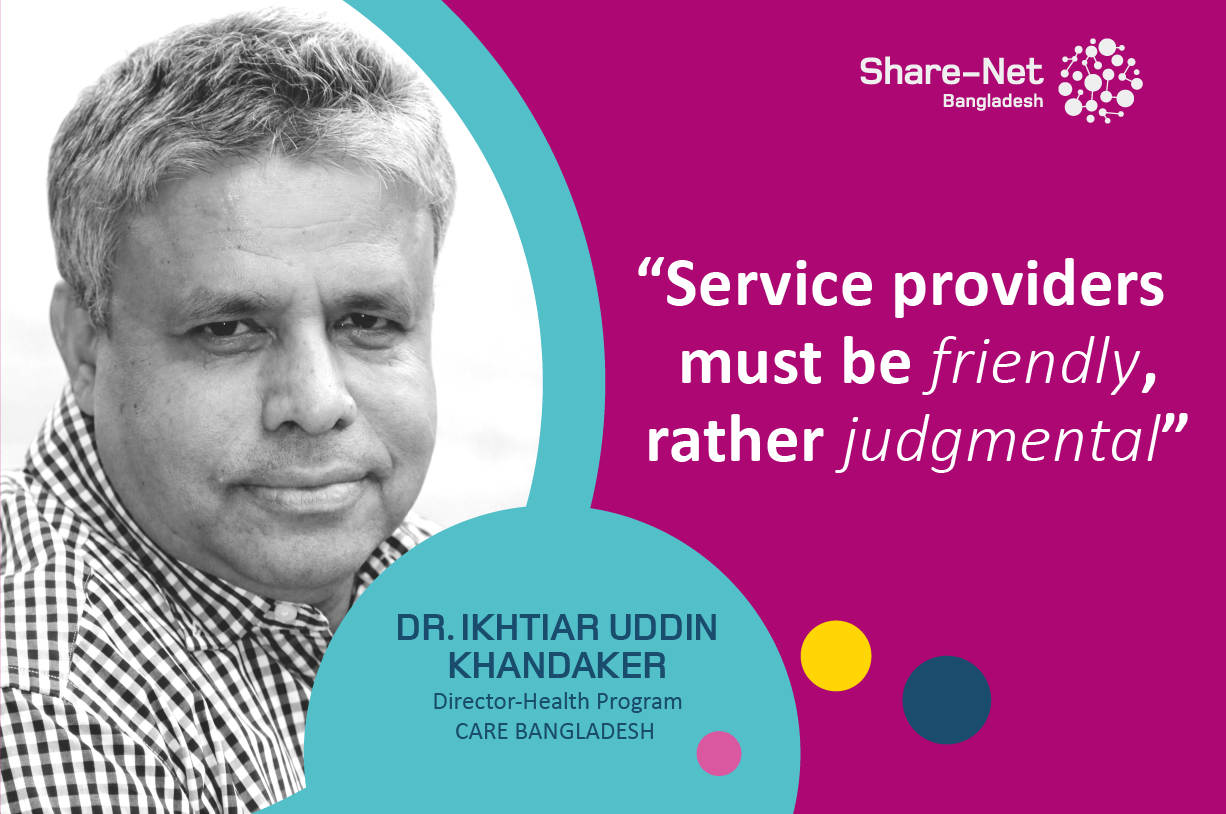“Service providers must be friendly, rather judgmental”, says Dr Ikhtiar
The biggest challenge that unmarried young people are facing right now is getting access to proper SRHR services. Facilities and services are available, but accessing these services comes with their own challenges. Firstly, the providers of these services are not well equipped or trained to address their needs; they are not friendly and rather carry a judgmental attitude. Secondly, the facilities are located too far away. Thirdly, the facilities are located too close to education centers or crowded areas that relatives or acquaintances might question them for visiting them.
Current scenario
In urban areas, the Generation Breakthrough project is working with the Ministry of Education, UNFPA and Plan International. This project has reached 60 schools in urban areas. The project uses innovative approaches to positively shift attitudes and behaviours around gender roles, gender-based violence, and sexual and reproductive health. Other projects that are based in urban areas are ADOHEART and Smiling Sun. Care Bangladesh has some projects based in Gazipur that focus on school and community level messaging.
In rural areas, the Directorate General of Family Planning (DGFP) has established adolescent friendly health corners in different places. The Smiling Sun project that is funded by USAID has clinics in rural areas to cater to adolescent SRHR needs. Plan International had some projects that covered hilly tracts, haors and coastal areas.
The most difficult aspect of SRHR for unmarried young people and adolescents is providing contraception and MR services to them due to the religious and cultural restrictions. However, contraception products are easily accessible at pharmacies. Regarding MR services, it is restricted to unmarried individuals because in order to receive the service, the service seeker has to give the name and signature of the husband.
The Government has created the National Adolescent Health Strategy which covers SRHR. Responsibilities are divided among different ministries accordingly. However, the biggest challenge is to implement the plans, policies and strategies. Ignoring the SRHR needs of unmarried young people and adolescents, or restricting their needs will not stop them from accessing services. However, it will compel them to use the same services from unsafe sources, resulting in health hazards of young people and even death.
Current policies, plans and strategies
The government has developed the National Adolescent Strategy which includes SRHR. According to the strategy, the government has divided responsibilities among different ministries. For example, the Ministry of Education will ensure that SRHR information is provided via educational institutions, the Ministry of Women and Children Affairs has confirmed the presence of adolescent clubs in communities. It is also true that there are many policies and plans whose implementation is very challenging.
There are many donors who are reaching out to unmarried adolescents through communities and educational institutions. They are supporting many non-governmental organizations for working with adolescents by giving them necessary information and training on life skills. These organisations are reaching out to adolescents in schools, and adolescents who are not going to school. Donors also encourage the organisation they are working with to support the government’s policies. So the donors are creating evidences with their own work, and they are extending their support to the government so that they can extend these scopes and opportunities throughout the country.
Recommendations
- The government has clearly mentioned the policies, plans and strategies. These should be implemented in a coordinated way. The coordination must be done under the leadership of the government. This coordination mechanism should be equally functional at the district and upazila level.
- Inter-ministerial coordination needs to be strengthened.
- Government should invite other development partners so that they could give their support
- Development partners should create evidence in favour of unmarried adolescents. These evidence will help to point out the gaps and challenges which demand attention from the government. With the help of this evidence, they can also give suggestions to the government on how to extend SRHR services in hard to reach areas.
Dr Ikhtiar Uddin Khandekar is the Director- Health Program at Care Bangladesh.


